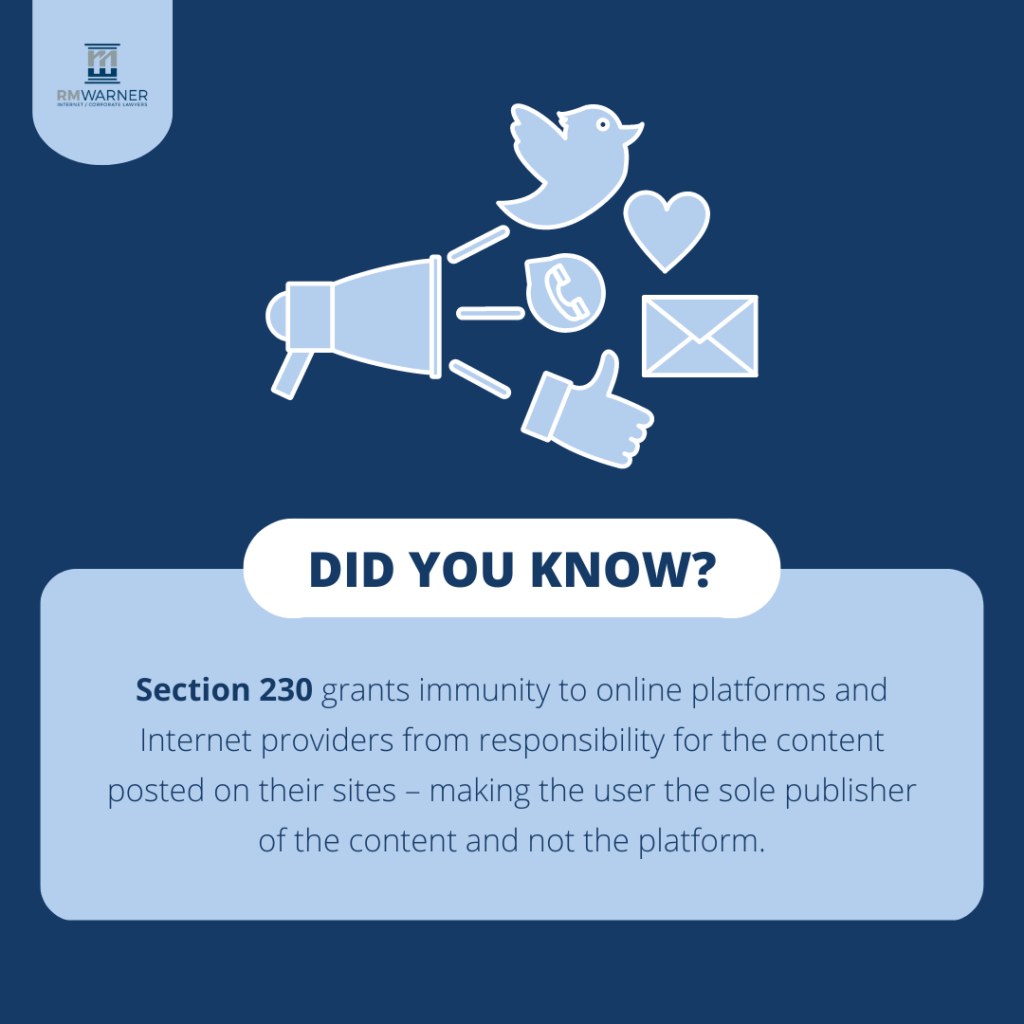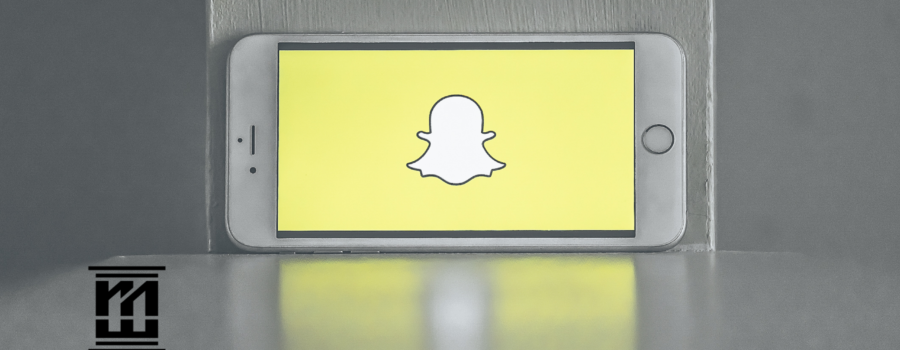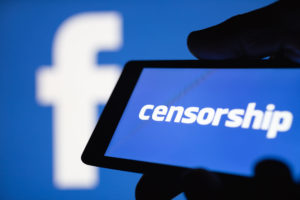Can section 230 save Snapchat from a lawsuit?
The popular video and photo sharing app Snapchat has a feature that allows users to show how many MPH their current speed is. Even though this feature can be exciting to use when filming at high speeds, it can also be dangerous, and even detrimental, when snapchatting while driving.
In 2017, three teenage boys drove up to 123 MPH before losing control, crashing into a tree and dying, all while documenting their speed on Snapchat. Two of the boys’ parents sued Snapchat for “failing to regulate what users post through the Speed Filter; if the users were not motivated to capture their high speeds for content, they would not speed,” according to court documents.
 Lemmon v. Snap: Lawsuit Dismissed Thanks To Section 230
Lemmon v. Snap: Lawsuit Dismissed Thanks To Section 230
At first, this case was dismissed under Section 230 protections. Section 230 of the Communications Decency Act grants immunity to internet providers and social media companies from liability on what users post on their platforms. For example, if someone posted a defamatory Facebook post, Facebook is not liable, the user who posted it is. Furthermore, Facebook is also not required to remove the defamatory post, even if it is proven to be false and defamatory in court.
For years, Section 230 has allowed social media companies to get away with misinformation and defamatory content posted on their platforms. However, in this particular case, it seems like Section 230 might not be able to save Snapchat.
Appeals Court Reverses Lemmon v. Snap Ruling
The parents appealed the District Court’s ruling to the Ninth Circuit Court of Appeals. After reviewing the District Court’s application of a certain three-prong test and realizing an error had been made, the Court of Appeals disagreed with the District Court’s ruling. This resulted in a reversal of the District Court’s dismissal on the basis of immunity under the Communications Decency Act.
You can read the full ruling here: https://cdn.ca9.uscourts.gov/datastore/opinions/2021/05/04/20-55295.pdf
“In short, Snap, Inc. was sued for the predictable consequences of designing Snapchat in such a way that it allegedly encouraged dangerous behavior. Accordingly, the panel concluded that Snap, Inc. did not enjoy immunity from this suit under § 230(c)(1) of the CDA,” according to the court ruling.
In other words, the appeals court viewed the parents’ lawsuit as seeking to hold snapchat liable as the designer of a feature that encourages dangerous behavior and not as the publisher or speaker, and therefore, Section 230 immunity would not apply.
“The law is clear that CDA immunity only applies if the immunity is being sought by ‘(1) a provider or user of an interactive computer service (2) whom a plaintiff seeks to treat, under a state law cause of action, as a publisher or speaker (3) of information provided by another information content provider.’” In this case, Snap was not being sought to be held liable for being a publisher or speaker, or on the basis of information provided by another person or “content provider,” says Internet attorney Daniel Warner.
Are You in Need of an Internet Lawyer?
If you are being defamed, cyberbullied, or wronged on social media, contact the Internet attorneys at RM Warner Law. We can guide you through the path to justice. Get in touch today.





Leave a Reply
Your email is safe with us.